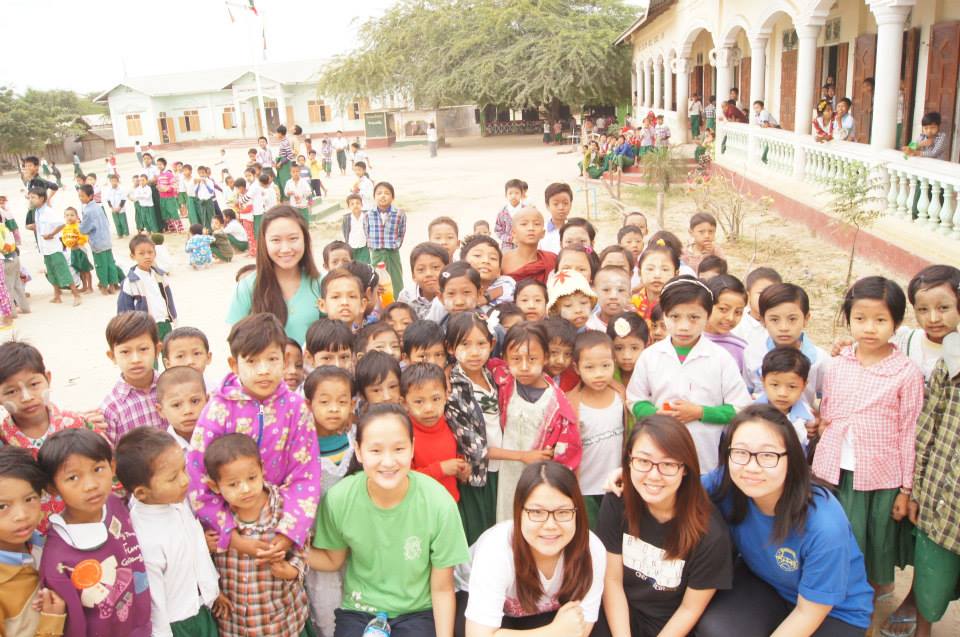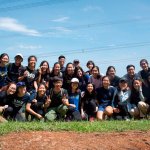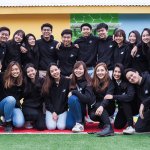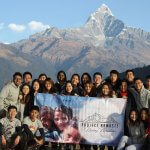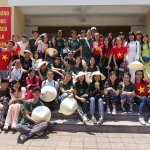By Damini Roy, SMU School of Economics
When it comes to experiences on an overseas community service project (OCSP) trip, every SMU student has a story to share. In a heart-to-heart chat with Venice May Wa Taw and Ong Woei Chian, two student leaders who organised an OCSP trip to Myanmar, we learnt how rural children taught them things they hadn’t learnt in the classroom.
1. Why did you choose to embark on a trip to Myanmar in particular?
Venice: As a Burmese citizen, it was a natural decision for me, so once I saw the opportunity I immediately hopped on. It was, however, a side of Myanmar that I myself have never experienced before. My past visits to Myanmar were mostly recreational as the little amount of time I was able to spend in there was allocated to spending time with family.
Woei Chian: From the coverage that Myanmar has been getting in Singapore, both through the media and Aung San Suu Kyi, Singaporeans need no introduction to the development that is going on in this country. We chose the place because of personal contact with the head of Yathar Village who happens to be a Burmese Monk based in Singapore. He was very enthusiastic to share things about his village with us, and when the opportunity to serve in the village arose, we just couldn’t give it a pass.
2. What were your first thoughts on doing this OCSP project?
Venice: The planning and organisation of the project started way back in April when I was still a first year student. I was initially hesitant for fear that I wasn’t as competent as my co-leaders who surpassed me in age, seniority and experience. I walked into the project with a big dream, but was unsteady as to how I would make all that happen.
Woei Chian: I was very excited to be given this chance to lead the project. Back in 2012, I made a promise to the children whom I had taught then, that I would be back next year. I’m just glad that I could honour my promise.
3. What were the main goals of your OCSP trip? How did you decide on these focus areas?
Venice: We wanted to increase the children’s global exposure—to enable them to have interactions with foreigners or outsiders, as well as to equip them with the basics of English as a second language—should they choose to venture outside of the village or country. The idea stemmed from the hopes of the village head who wished to see his villagers being able to develop culturally and intellectually alongside the developed countries of the world today.
Woei Chian: We intended to introduce a revised English syllabus to the teachers and children there. Our team made adjustments to the syllabus, including the adding of pictures for better explanation and teaching purposes. Group exercises were also planted inside the revised syllabus to encourage more participation from the children and to make the lessons more engaging.
We also wanted to refurnish the school library with books. We secured a donation of 250 books from the National Library Board (NLB) in Singapore.
4. What are the two most valuable lessons that you learnt during the course of organising this OCSP?
Venice: The benefits of diversity far outweigh its disadvantages in team dynamics. Though a harmonious team can come to a conclusion easily, resulting in less conflict, a diverse team value adds to the project through novel ideas and details, leaving no stone unturned, which improves the planning as well as the execution of the project.
Woei Chian: 1) Responsibility. Back in 2012, when I was just a member of the previous project, there were many things that I lamented as a member. Things like why we couldn’t do things a certain way, and so on. As clichéd as it may sound, it was only when I became a leader myself that I understood the rationale behind each activity planned.
2) Always be ready and prepared to adapt to situations. You will never know what is going to come your way. As Singaporeans, we are used to planning ahead. For example, when we go on a holiday, we always make sure we have our hotels and transport booked, and most of the time, we’ll even have a list of places that we want to visit. We always plan ahead.
I found that our Singaporean way of planning things was a huge asset for the team. When you are in a foreign land, the culture and language are different. The way of life and how they work are also different, and things tend to get a little disorganised. Always be prepared and ready, because you will never know when the contingency plan that you prepared will come in handy.
5. What is your favourite memory from the trip?
Venice: The team campfire. We hardly stepped out of the school compound where we taught the students, so the campfire outing was the only time when we could interact with the students and their parents, as well as other villagers. Emotions were running high that night as it was the second last night that we were staying at the village. It was a moving experience for each and every one of us.
Woei Chian: The 8-hour bus ride from the airport to the village—it was long and arduous, but completely worth it! I also have fond memories of the fireworks that we set off, as a team together, on our last night in Myanmar.
6. What advice would you give other students who want to lead an OCSP trip?
Venice: Even when you have already foreseen risks associated with the activities conducted and prepared action plans for them, unexpected events might still occur. As a leader, it is important that you are flexible enough to adjust and adapt initial plans to suit the situation at hand.
Woei Chian: As a leader, you are tasked with the responsibility of ‘looking after’ the whole team. Being in a foreign land, there will be situations where you will be called upon to protect the interests of your team members. Preventing your team members from getting shortchanged is an art and a skill.
7. Has this OCSP experience changed your outlook towards things?
Venice: I wouldn’t classify this as a change in outlook, but I was inspired by the student’s passion and drive for learning. Although our classes were held during the students’ term break, all of them still came to school for class as per normal. They were also eager to attend the “supplementary lessons” conducted by our three Burmese student volunteers after our official lessons.
Woei Chian: Definitely, I had a remarkable change in my outlook. I learned to be more understanding of other people. When you recruit 17 people from different cultural backgrounds, the project becomes a big melting pot. It is important to be more open-minded and never take lightly what the other person has to say or share. Understanding grows out of respect for each other’s different outlooks.
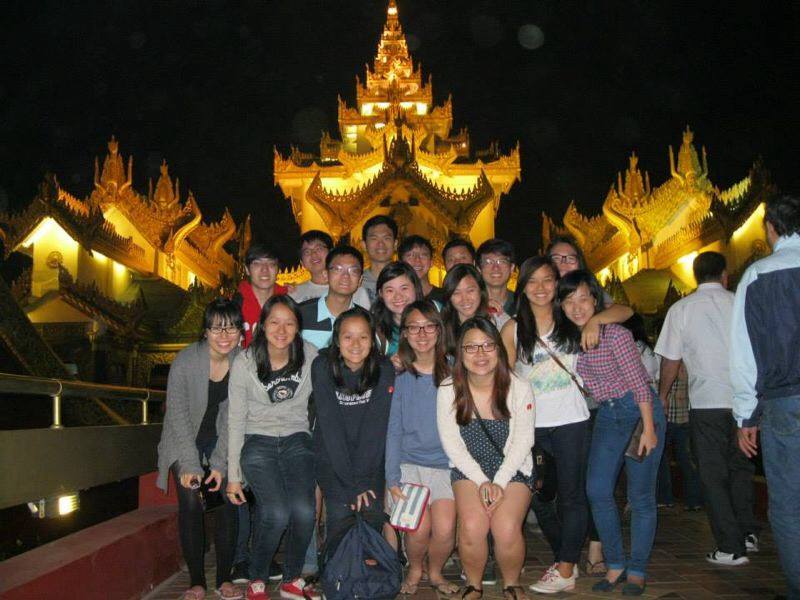
Click here to find out more about the community service projects that SMU students are involved in.

